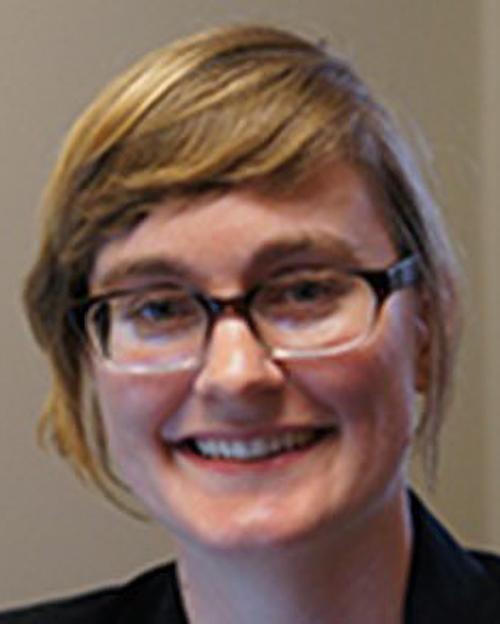People
Current Members

Linda Tickle-Degnen, PhD, OTR/L, FAOTA, Lab Director
Professor Emerita Linda Tickle-Degnen teaches courses in evidence-based practice, clinical reasoning, research methods, and therapeutic behavior and motivation. Her research is directed toward understanding and promoting positive social functioning and wellness in Parkinson's disease and other chronic conditions. In particular she studies nonverbal and verbal communication, cross-cultural health care interactions, interpersonal rapport, engagement in meaningful daily activities, and quality of life. She is interested in increasing occupational therapists' participation in inter- and multi-disciplinary clinical interventions and research activities that have the goal of improving the health and quality of life of individuals with chronic conditions.
Key Collaborators

Kathleen Rives Bogart, PhD
Kathleen Bogart is Assistant Professor in the School of Psychological Science at Oregon State University. Dr. Bogart studies disability from a social psychological perspective, examining others’ attitudes toward disability and the way people with disabilities adapt to their conditions and manage stigma. Specifically, much of her work focuses on the psychological and social implications of facial paralysis and facial movement disorders. She received her PhD in Psychology at Tufts University in 2012. Her dissertation work in the Health Quality of Life Lab, entitled Compensatory Expressive Behavior for Social Functioning with Facial Paralysis, was funded by a National Institutes of Health Predoctoral Fellowship.

Amanda Hemmesch, PhD
Amanda Hemmesch received her PhD in social-developmental psychology from Brandeis University in 2011. She is currently an assistant professor of psychology at St. Cloud State University. Her research focuses on improving health, well-being, and quality of life for older adults and individuals with chronic conditions. She is interested in how health and psychosocial factors, especially social relationships, influence development and well-being throughout adulthood. Her dissertation was a collaboration with Dr. Leslie Zebrowitz at Brandeis University and Dr. Linda Tickle-Degnen at Tufts University that examined older adults’ first impressions of individuals with Parkinson’s disease. Her current research examines nonverbal behavior, interpersonal perception, and social relationships in the context of Parkinson's disease and stigmatizing conditions. Her previous work has examined psychosocial influences of pain and well-being for individuals with osteoarthritis, as well as social preferences across the lifespan.

Heather Gray, PhD
Heather Gray is Associate Director of Academic Affairs at the Division on Addictions, Cambridge Health Alliance, a Harvard Medical School teaching affiliate, and an Instructor in Psychiatry at Harvard Medical School. She received her PhD in social psychology from Harvard University in 2006, where she studied interpersonal sensitivity and social cognition. From 2006-2008, she was a post-doctoral fellow in the Health Quality of Life Lab, under a fellowship sponsored by Boston University's Health and Disability Research Institute. During her time in the Health Quality of Life Lab, Dr. Gray worked with Professor Tickle-Degnen on research studying how the symptoms of Parkinson's disease influence people's ability to broadcast and interpret thoughts, feelings, and personal character. Their meta-analysis of emotion recognition in Parkinson's disease was published in the journal Neuropsychology. Photo courtesy of Division on Addictions, Harvard Medical School.

Sarah Gunnery, PhD
Sarah Gunnery received her PhD in Social Psychology from Northeastern University in 2013 where she studied interpersonal sensitivity and smiling as a social behavior. Her research in the Health Quality of Life Lab focuses on facial expressivity and how people can use posed expression to compensate for a loss of natural expression as they age. She is also interested in the social perception of posed facial expression and how the capacity to produce certain facial expressions is related to social engagement.

Pai-chuan Huang, ScD OTR
Pai-chuan Huang received his Doctor of Science (ScD) degree in Rehabilitation Sciences at Sargent College of Health and Rehabilitation Sciences, Boston University. Prior to joining the program, he worked as an occupational therapy teaching assistant at the National Cheng Kung University in Taiwan, and as a part-time occupational therapist. In his dissertation, he explored rapport building capacity, facial expressiveness, and social aspects of quality of life in Parkinson’s disease. Dr. Huang is currently working as a postdoctoral fellow at Chang Gung University in Taiwan. He continues his interest in elderly population and has been involved in clinical trials examining treatment effects of contemporary rehabilitation approaches such as robot-assisted therapy and mirror therapy.

Michael Stevenson, MS
Mike received his MS in Social Psychology from The Pennsylvania State University in 2010, studying the effects of social categorization and social inclusiveness on emotion recognition accuracy across racial and cultural groups. He has also studied the role of social information processing in parenting risk for child maltreatment.

Kayoko Takahashi, ScD, OTR
Kayoko Takahashi is a Lecturer at the Department of Occupational Therapy, School of Allied Health Science, Kitasato University in Japan. She received her Doctor of Science (ScD) degree in Rehabilitation Sciences at Sargent College of Health and Rehabilitation Sciences, Boston University. Prior to joining the program, she worked as an occupational therapist specializing in improving physical function among people with Parkinson's disease (PD) and their families. Her primary areas of research are motivation, self-efficacy, and outcome expectancy in Parkinson's disease. Her dissertation research involved developing an observational coding system using behavioral cues to identify motivational states in people with PD.